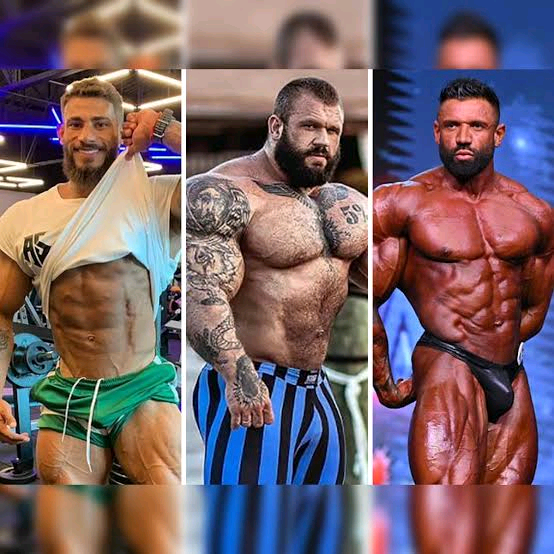
Famous bodybuilders Illia Yefimchyk, Antonio Souza, Neil Currey die in a year: Experts give exercise guidelines…..
The recent deaths of renowned bodybuilders Illia Yefimchyk, Antonio Souza, and Neil Currey have sparked a conversation about the physical and mental demands of bodybuilding and the importance of safe practices in the sport. While the exact causes of their deaths are still under investigation, experts emphasize the need for comprehensive exercise guidelines that prioritize health and safety.
### Understanding the Risks
Bodybuilding, particularly at a competitive level, often involves extreme training regimens, strict diets, and sometimes the use of performance-enhancing substances. These practices can lead to various health complications, including cardiovascular issues, kidney strain, and metabolic imbalances. The pressure to achieve a particular physique can also take a toll on mental health, leading to anxiety, depression, and disordered eating patterns.

### The Importance of Balanced Training
Experts recommend a holistic approach to bodybuilding that balances strength training, cardiovascular health, and flexibility. Here are key guidelines for bodybuilders to follow:
#### 1. **Structured Training Program**
– **Periodization**: Implement a training cycle that includes phases for building strength, hypertrophy, and recovery. This approach helps prevent overtraining and injuries.
– **Variety**: Incorporate different types of exercises—compound movements (like squats and deadlifts) and isolation exercises (like bicep curls)—to develop balanced muscle growth.
#### 2. **Prioritizing Recovery**
– **Rest Days**: Schedule regular rest days to allow muscles to repair and grow. Overtraining can lead to fatigue, increased injury risk, and decreased performance.
– **Active Recovery**: Engage in low-intensity activities such as walking, yoga, or swimming to promote blood flow and recovery without overexerting the body.
#### 3. **Cardiovascular Health**
– **Incorporate Cardio**: Regular cardiovascular training can improve heart health and aid in fat loss. Aim for at least 150 minutes of moderate-intensity cardio per week.
– **Monitoring Intensity**: Use heart rate monitors to ensure workouts are within a safe range, particularly for those with existing health issues.
#### 4. **Nutrition and Hydration**
– **Balanced Diet**: Focus on a diet rich in whole foods, including lean proteins, healthy fats, and complex carbohydrates. Nutrient timing around workouts can enhance performance and recovery.
– **Hydration**: Adequate hydration is crucial. Dehydration can impair physical performance and recovery. Aim for at least 3 liters of water daily, adjusting for activity level and climate.
#### 5. **Supplement Use**
– **Consult Professionals**: Before taking any supplements, consult with healthcare professionals to assess safety and necessity. Avoid unregulated substances that could pose health risks.
– **Focus on Basics**: Prioritize whole food sources for nutrients before considering supplements. Protein powders, vitamins, and minerals should complement a well-rounded diet.
### Mental Health Considerations
The pressures of bodybuilding can lead to mental health challenges. It’s essential to address these aspects for overall well-being:
#### 1. **Mental Health Support**
– **Therapy and Counseling**: Engaging with a mental health professional can help manage stress, anxiety, and body image issues.
– **Support Groups**: Joining groups with others who understand the pressures of bodybuilding can provide emotional support and reduce feelings of isolation.
#### 2. **Body Image Awareness**
– **Realistic Goals**: Set achievable fitness goals and recognize that individual bodies respond differently to training. Focus on health rather than solely on aesthetics.
– **Positive Self-Talk**: Cultivate a positive mindset by practicing self-compassion and acknowledging progress, no matter how small.
### Regular Health Monitoring
Regular health check-ups can help identify potential issues early. Bodybuilders should prioritize:
#### 1. **Routine Screenings**
– Regular blood tests can monitor hormone levels, kidney function, and cholesterol. This proactive approach can help catch any red flags.
– Cardiovascular screenings should be part of routine care, especially for those with a history of heart issues in their family or previous conditions.
#### 2. **Physical Assessments**
– Work with trainers who can assess biomechanics and identify any imbalances or weaknesses that could lead to injury.
– Flexibility and mobility assessments can enhance performance and reduce injury risks.
### Conclusion
The tragic losses of bodybuilders like Illia Yefimchyk, Antonio Souza, and Neil Currey serve as a stark reminder of the importance of prioritizing health in the pursuit of bodybuilding success. By adhering to structured training programs, emphasizing recovery, focusing on nutrition, and being mindful of mental health, athletes can create a sustainable and healthy approach to bodybuilding. Regular health monitoring further supports long-term well-being, allowing bodybuilders to thrive in the sport while minimizing risks. As the bodybuilding community reflects on these losses, it is crucial to foster a culture that values health above all else.
Leave a Reply